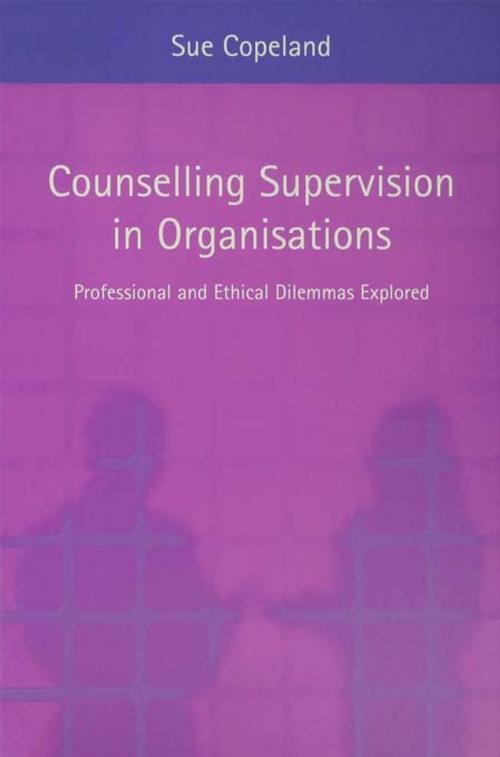Counselling Supervision in Organisations
Professional and Ethical Dilemmas Explored
Nonfiction, Health & Well Being, Psychology, Counselling, Mental Health| Author: | Sue Copeland | ISBN: | 9781135453824 |
| Publisher: | Taylor and Francis | Publication: | April 3, 2013 |
| Imprint: | Routledge | Language: | English |
| Author: | Sue Copeland |
| ISBN: | 9781135453824 |
| Publisher: | Taylor and Francis |
| Publication: | April 3, 2013 |
| Imprint: | Routledge |
| Language: | English |
Counselling supervision is an expanding area, as increasing numbers of counsellors enter the profession and require supervision on a regular basis. Counselling Supervision in Organisations seeks to provide a model of counselling supervision within organisations, enabling supervisors, counsellors and their line managers to work effectively within organisational cultures for the benefit of all parties in the working alliance.
Drawing on her own research, Sue Copeland explores both counselling and supervision cultures and their fit with various organisational cultures. The dilemmas that often arise from a clash between differing cultural norms are discussed in relation to the supervisory process. From securing a supervisory position, contracting for the work, reporting back to the organisation, assessing the work and ending the relationship, through to an in-depth consideration of the supervisory work embedded in a good working relationship, her model provides a blueprint for the supervisory process.
The model described in Counselling Supervision in Organisations brings together the cultures of counselling and supervision and their relation to organisational cultures. It will provide a unique resource for counsellors, trainee and professional counselling supervisors and their line managers.
Counselling supervision is an expanding area, as increasing numbers of counsellors enter the profession and require supervision on a regular basis. Counselling Supervision in Organisations seeks to provide a model of counselling supervision within organisations, enabling supervisors, counsellors and their line managers to work effectively within organisational cultures for the benefit of all parties in the working alliance.
Drawing on her own research, Sue Copeland explores both counselling and supervision cultures and their fit with various organisational cultures. The dilemmas that often arise from a clash between differing cultural norms are discussed in relation to the supervisory process. From securing a supervisory position, contracting for the work, reporting back to the organisation, assessing the work and ending the relationship, through to an in-depth consideration of the supervisory work embedded in a good working relationship, her model provides a blueprint for the supervisory process.
The model described in Counselling Supervision in Organisations brings together the cultures of counselling and supervision and their relation to organisational cultures. It will provide a unique resource for counsellors, trainee and professional counselling supervisors and their line managers.















